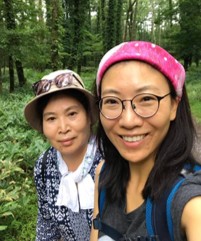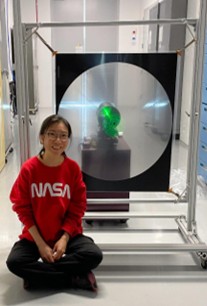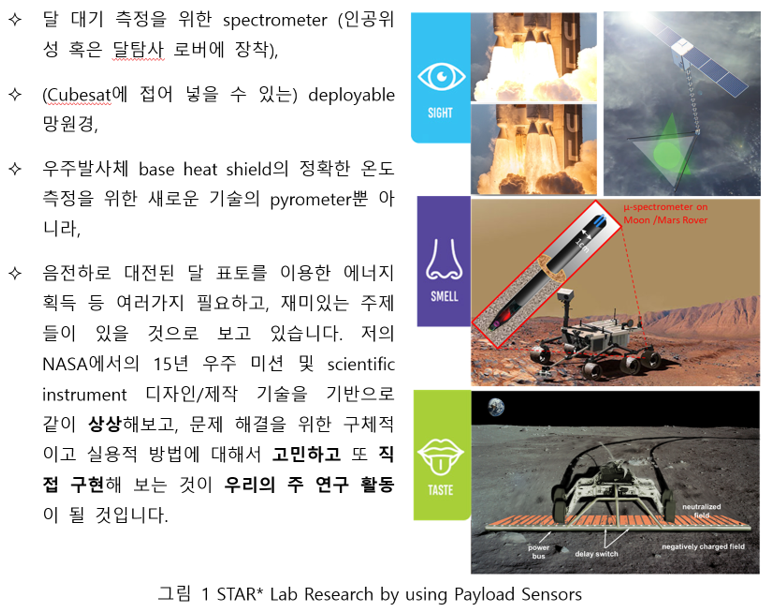Spotlight
- Hyun Jung Kim / Associate Professor
- 관리자 |
- 2025-06-02 17:30:54|
- 50
- 2025-06-02 17:30:54|

Hyun Jung Kim
Associate Professor
designing, fabricating, and evaluating advanced sensors and energy devices tailored to realistic space environments
I am Hyun Jung Kim, an Associate Professor, PI the STAR* (Space Testing And payload sensoR) Laboratory in the AE at KAIST since September 27, 2024.
My mother once told me, “Life is a line composed of countless points. Sometimes you'll encounter moments you wish to skip, and other times you'll find happiness so profound you'll want to linger. Yet life never stays at one point, so keep marking your points thoughtfully as you continuously draw your life's line.” Allow me to share the current point I'm marking at KAIST.

I am Hyun Jung Kim, an Associate Professor, PI the STAR* (Space Testing And payload sensoR) Laboratory in the AE at KAIST since September 27, 2024.
Over the past 16 years (2009–2024), I served as a Research Physicist at NASA Langley Research Center (NASA LaRC) in the US, specializing in photonics engineering, space materials, payload sensors (telescope, spectrometer, pyrometer, etc.) and renewable energy technologies. I have led numerous projects as PI, focusing on active and passive sensor development and deployable space telescope technologies, essential for space communication and LiDAR applications. My experience includes leading research for several MISSE missions (Materials International Space Station Experiment). Notably, I spearheaded the development of the Space Launch System (SLS) status-monitoring payload, SAMI, from 2017. SAMI notably provided unprecedented global measurements of the SLS core stage temperature and plume-induced phase separation during NASA’s Artemis-I mission.

The STAR* (https://starlab.kaist.ac.kr/) at KAIST focuses on designing, fabricating, and evaluating advanced sensors and energy devices tailored to realistic space environments. Our goal is to act as the sensory and energy-providing core for space missions—essentially functioning as the eyes, nose, mouth, ears, and heart of spacecraft. STAR* currently specializes in two primary research areas: the development of payload sensor technologies, and the creation of robust devices and materials for diverse space environments, ranging from very low Earth orbit (VLEO) to deep space (Moon, Mars, and beyond). To support this ambitious vision, we have established space environment simulator to account for the complex hazards encountered in space. Devices developed by STAR* undergo rigorous ground-based simulations and comparative testing with actual space conditions, in close collaboration with NASA.

Ultimately, STAR* Laboratory strives to become a comprehensive research facility capable of handling the entire lifecycle of aerospace missions—from initial research and design to manufacturing and validation experiments. Our scope encompasses the study and development of advanced materials, optical sensors, energy devices, and environmental measurement techniques critical for assessing durability in space. We actively engage in international research collaborations with esteemed institutions such as MIT, NASA, NTU Singapore, and the University of Cambridge.
| Attach File |
|---|

